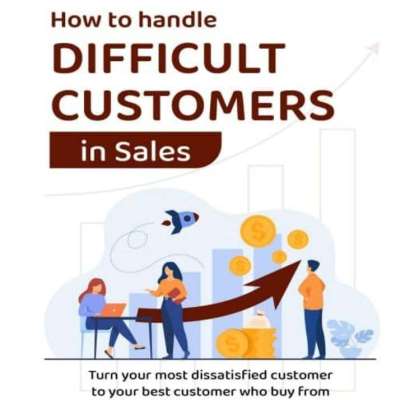Recently, I worked with a client for whom I created explainer videos for their services. After completing the third video, the client remarked, "Samuel, you've improved so much in just these few days we've been working together. Is this your usual pace? Each video gets more creative and better than the last!"
As someone with Steeze and composure, you could guess what my reply would be or rather experience it yourself. With that I delivered an even better job. The client ended up paying me more than we originally agreed upon, the video performed exceptionally well, and everyone went home happy.
So, what was the root cause of all this success?
It was growth. I invested in my skills, took the time to understand what the brand was all about, and focused on what they needed to achieve. As I deepened my understanding of their services and brand over those few days, the quality of the videos I produced also improved.
By growing my knowledge of the brand, I grew my wallet too—while the brand expanded its audience.
This is a typical example of business growth. I offer video editing and video advert creation as a service, which is my business. Every day, I make it a point to add something to my knowledge bank that's related to my skill. This helps me improve the quality of my services, serve my customers better, and, in turn, grow my income.
Now, what you do might be different from what I do, but as long as you're earning money from it and offering it as a service or product to help others, then it's definitely a business.
And don't misunderstand—business growth isn't just about having a big office, government approval, or hundreds of employees. Growth varies for different businesses and individuals, depending on the goals they set. For example, Business A might set a goal to buy land next year, Business B might aim for $5,000 in yearly sales, and Business C might focus on developing a new marketing strategy.
Once these businesses achieve their goals, it’s considered growth for them. You get it ?
You might decide to learn a new closing skill to help your business secure more clients, or you might develop a new marketing strategy to boost your business. Once you've accomplished these things, your business has achieved a certain level of growth.
Consider this: the grocery store you visit that initially didn’t have what you needed but later stocked it and earned your business—that’s growth. They've grown by adding you as a customer.
In essence, if you want business growth, just ensure you're always adding something new—whether it's knowledge, skills, or goals. The ultimate goal might be to become a global business and serve the top 1%, but every small step counts.
Keep developing strategies, smashing goals, reaching out to new partners, and setting plans in motion. Little by little, I'll see your business rise to the top.
Was this helpful on business growth?
DAY 6
TOPIC:
BUSINESS GROWTH
#bmc
#thecreator'squest
#contentwriter
#day6







Samuel Agoha
Verwijder reactie
Weet je zeker dat je deze reactie wil verwijderen?
Samuel Agoha
Verwijder reactie
Weet je zeker dat je deze reactie wil verwijderen?
Samuel Agoha
Verwijder reactie
Weet je zeker dat je deze reactie wil verwijderen?
Samuel Agoha
Verwijder reactie
Weet je zeker dat je deze reactie wil verwijderen?
Samuel Agoha
Verwijder reactie
Weet je zeker dat je deze reactie wil verwijderen?
Princewill James
abi you don't want my steeze to grow nii.
confidence is a key players to business growth. you realize you're growing when you feel comfortable enough to talk to people about your business without feeling a need to prove anything to them. (
your business itself is the proof)
take the big companies for example, they've grown tithe point that they don't need to come to you, kneel down and prostrate before you buy.
they put the right things in place, and then the money fall right at their feet.
bottom line:
more steeze, more growth.
Verwijder reactie
Weet je zeker dat je deze reactie wil verwijderen?